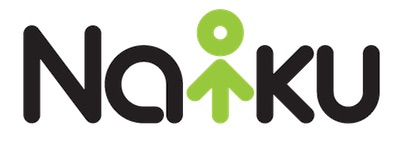The study report concluded that the use of iPads produced a “significant and very positive impact on learning and teaching.” The study notes that both pedagogical changes and new ways of learning engendered by the ‘any time anywhere’ access to information and learning tools” are expected to result in increased student achievement. We at Naiku aren’t at all surprised at the findings because that’s what we’re seeing, too, in the schools that are using Naiku.
The study’s author suggests (without really explaining why) that iPads are preferable to other kinds of devices, but we haven’t seen that the difference in the kind of device that is used by students makes much difference. Naiku works on all kinds of devices – Macs, Windows, iOS, and Android. Extended text entry or reading seems to be a little more difficult on the smaller screens of iPod Touches, but a student who is familiar with the device frequently overcomes that difficulty with the experience they’ve developed over many hours of practice on other applications.
We’re also not surprised that students overwhelmingly want to make more use of their iPads. The things that the Longfield Academy students say they want to do more of with their iPads are:
- “Photography editing and animations
- Making videos/movies
- Word games to help teach spelling
- Use of the iPad in place of pen and paper
- More writing assignments on the iPad
- Taking tests on the tablet
- Replacing text books with ebooks
- Designing games
- More science Apps “
One of the reasons students have reported to us that they like taking tests on mobile devices, using Naiku, is that they get immediate feedback on a variety of levels. Students really do like being engaged in their learning. The possibilities for future educational uses of ubiquitous web devices are exciting, and not so daunting as might be expected if implemented thoughtfully. Naiku’s Keys to Success document is a guide for schools. We welcome any additional thoughts or experience, and expect that many education professionals will soon be polishing the ways that web devices get used in classrooms.
This Longfield Academy study is important because it asks useful questions for the future. In particular, this study gets at the heart of an issue that’s on the minds of many – should schools be the provider for all students of a web learning device? And then, should those devices be all the same kind? At Naiku, we don’t necessarily care whether the school provides the devices or that they’re all the same kind, but we are interested if one way or the other increases student achievement, which is what we’re all about.

